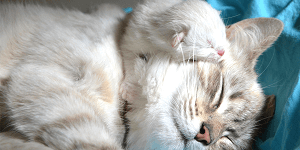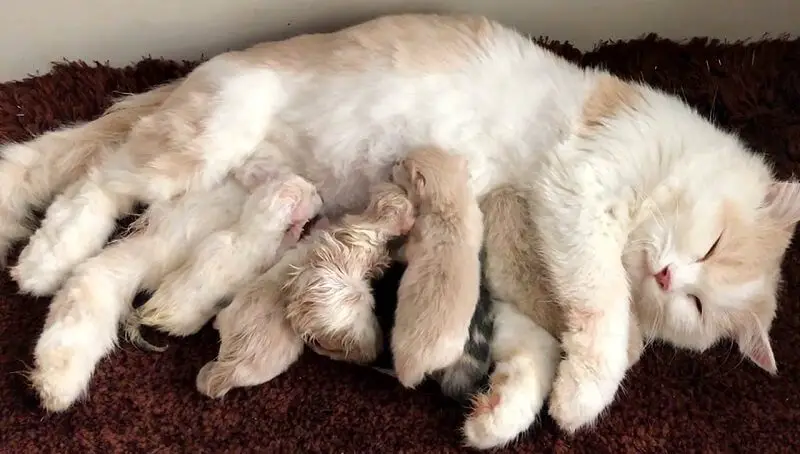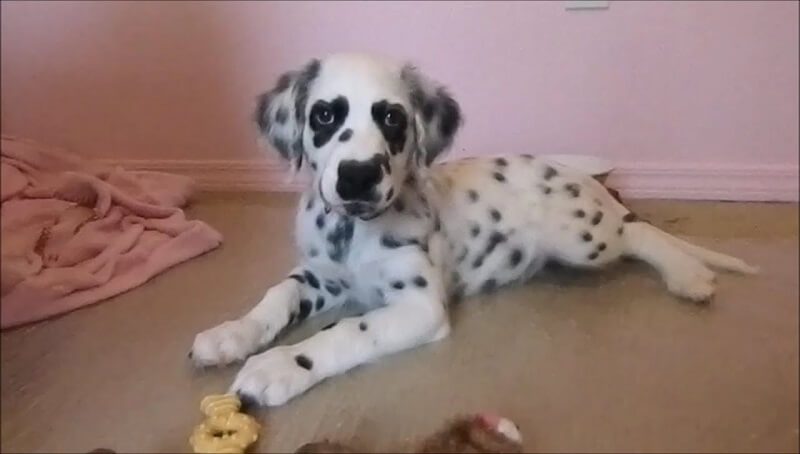Is your cat pregnant? This means that a very exciting time is waiting for you. But the following event also brings some questions, especially if it is the first birth of the cat. I have gathered the most important information about giving birth in cats to help you prepare for the event.
How long does gestation take in cats?
Once a cat becomes pregnant, it takes about nine weeks before the kittens are born. But the exact gestation period varies between 61 and 72 days. If the kittens have not been born after the 72nd day, an urgent visit to the veterinarian is recommended.
Cats generally reduce their usual activities during this period, except for those involving the food bowl. After all, now she has to “eat” for more. Of course, the weight of the future mother also changes, becoming visibly rounder.
Do I have to go to the vet before the cat will give birth?
Visit your veterinarian as soon as you notice that your cat is pregnant. The veterinarian is the one who can explain everything you need to know about birth in cats. On the other hand, he will tell you whether your pregnant cat and kittens are healthy and how many kittens to expect.
You might also like my articles on:
- When do kittens open their eyes
- How many kittens can a cat have in a single litter
- When can cats go outside after giving birth
He can detect the heart activity of kittens with ultrasound from day 24. From day 43, the exact number of kittens can be determined by means of an X-ray. By the way, a cat makes an average of three to six offspring per gestation. However, the first birth in cats comes with fewer kittens than the average.
Birth in cats: What do I need?
Cats are usually able to give birth alone. Fortunately, complications are rare. However, as long as the cat is giving birth, watch what is happening, stay calm, and make sure the mother is comfortable. Avoid any stress for the cat toward the end and after gestation.
If the birth is near, give your cat soft bedding or boxes to give birth in. But not every cat appreciates these offers. During labor, some cats withdraw in the closet or in the laundry basket to give birth.
Other important things you need to prepare:
- Make sure you have your veterinarian’s number at hand.
- Prepare a scale to note the weight of the kittens.
- Note the birth time of the cat with the time and weight of the kittens. This will help your veterinarian if complications arise later.
- Prepare a small, clean towel to wipe newborn kittens if necessary. The offspring’s mother usually does this on her own.
- Buy bottles and milk powder specially for kittens. Sometimes the mother can’t give the babies enough milk.
- Heated mattresses, an infrared radiator, or wheat pillows are recommended to create a warm bed for kittens.
How do I know if my cat is going to give birth?
There are various signs that indicate birth in cats. The most important are:
- Anxiety: The cat becomes more and more agitated on the days before birth. She walks longer, meows more often, or cleans herself constantly.
- Loss of appetite: The cat eats less or completely refuses food; instead drinks more water.
- Looking for a private place: The future mother is looking for a quiet and protected place to give birth to her babies.
- Breast milk coming out of the nipples.
- The cat sits on its side and breathes faster.
If you notice these signs, it’s best to stay home while your cat is in labor to make sure you can help if there are any complications.
How long does a cat give birth? How is the birth of kittens?
 Like humans, cats go into labor before giving birth. The cat will start breathing faster and louder, purring, and may be more loving. Many domestic cats do not want to be left alone at this stage. In this case, treat her well and pet her.
Like humans, cats go into labor before giving birth. The cat will start breathing faster and louder, purring, and may be more loving. Many domestic cats do not want to be left alone at this stage. In this case, treat her well and pet her.
Labor in cats takes about two hours. Contractions start right before. The cat visibly pushes the abdomen several times. Then the kitten is born quite quickly. It may take about an hour before the birth of the next kitten; the mother will rest during this period.
Cleaning the kittens
Immediately after birth, the cat will remove the amniotic sac, bite the umbilical cord and clean the kitten. Relatively hard licking is important to stimulate the kitten’s breathing. The cat may be exhausted after birth. If she doesn’t start this process alone, you can help her easily. Put the kitten face down and rub it carefully against the cloth. The goal is to release the airways and stimulate breathing.
By the way, do not be surprised if the cat eats the placenta after birth. It is a completely natural behavior of cats that helps, among other things, to keep predators away.
How do I know if complications occur during labor and birth?
Cats give birth alone and usually do not need help from humans. Check your cat regularly during labor. But do not interfere in the birth process without good reason; this could stress the cat even more.
However, there are warning signs during and after birth in cats. If you notice any of them, you should contact your veterinarian:
- The cat has been pushing for two hours and has not yet given birth to a kitten.
- You can already see the kitten, but it does not come out despite the fact that the cat has been pushing for a long time.
- It takes a long time before the next kitten is born. It should be no more than one and a half hours between births.
- The amniotic fluid smells very bad.
- The cat pushes even if she has already given birth to all the kittens.
- The cat looks apathetic and bleeds a lot.
- After birth, the cat becomes agitated, trembles, or no longer eats.
- You notice red or brown, smelly secretions from your cat’s nipples.
- Kittens seem to be very weak, and lifeless, do not drink milk, and do not gain much weight.
Cats after birth: What happens now?
Immediately after birth, kittens look for the mother’s nipples and start drinking the first milk. This is extremely important because kittens receive antibodies essential to their immune system and other nutrients. They can only absorb these substances in the first hours after birth. Only in 3-4 weeks, you will be able to offer kittens some solid food.
In some cases, after birth, the cat takes its kittens to another place to protect them from possible enemies. This is normal, it is an instinctive behavior. Let your cat choose the right place.




